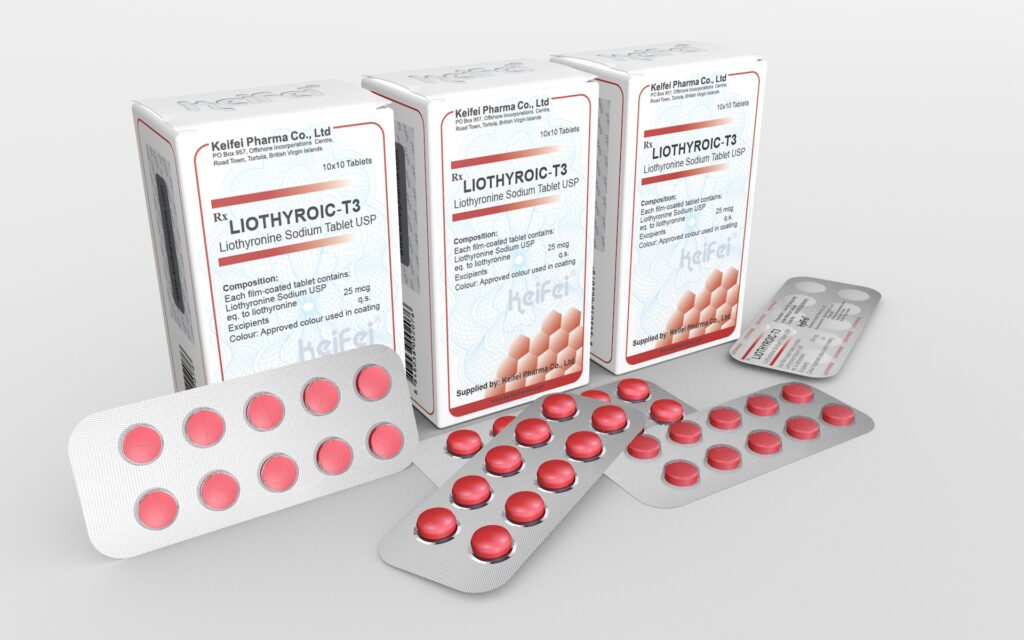Keifei 25mcg 50 Liothyroic-T3 tablets Cytomel Review
Name: Liothyroic-T3 25 mcg
Manufacturer: Keifei Pharma steroids company
Contents: 50 x 25mcg cytomel tablets.
Liothyroic-T3 Pharmaceutical Name: liothyronic Sodium
Presentation: 25mcg per tablet. Red colour film coated round concave tablet with KF wording imprint on one side. In plastics blister pack of 10 strips x 10 tablets of 100 tablets in a box. Comes with 1 set of 10 digits authentication codes paste on the box.
Liothyronine is a form of thyroid hormone used to treat hypothyroidism and myxedema coma. Liothyronine is the most potent form of thyroid hormone. Chemically, it is nearly identical to triiodothyronine(T3). As such, it acts on the body to increase the basal metabolic rate, effect protein synthesis and increase the body’s sensitivity to catecholamines (such as adrenaline) by permissiveness. The thyroid hormones are essential to proper development and differentiation of all cells of the human body. These hormones also regulate protein, fat, and carbohydrate metabolism, affecting how human cells use energetic compounds.
In comparison to levothyroxine (T4), liothyronine has a faster onset of action as well as a shorter biological half-life, which may be due to less plasma protein binding to thyroxine-binding globulin and transthyretin.
Drugs with thyroid hormone activity, alone or together with other therapeutic agents, have been used for the treatment of obesity. In euthyroid patients, doses within the range of daily hormonal requirements are ineffective for weight reduction. Larger doses may produce serious or even life-threatening manifestations of toxicity, particularly when given in association with sympathomimetic aminessuch as those used for their anorectic effects.
Physicians can use this instead of or in addition to levothyroxine (T4) for patients undergoing thyroid withdrawal. When a patient has thyroid cancer or Graves’ disease, ablation therapy with radioactive iodine (131I) can be used to remove any trace thyroid tissue. For 131I therapy to be effective, the trace thyroid tissue must be avid to iodine. The best method is to starve the tissue of iodine but this can lead to hypothyroid symptoms for the patient. Withdrawal from levothyroxine can be done but it takes six weeks of withdrawal for the remaining thyroid tissue to be completely starved. Six weeks is needed owing to levothyroxine’s long half life. Six weeks can be inconvenient for the patient and delay treatment. Liothyronine instead can be taken and withdrawn from for two weeks to starve the thyroid tissue. This is much safer and more convenient than levothyroxine.
Liothyronine may cause a number of side effects, mostly similar to symptoms of hyperthyroidism, which include:
– weight loss
– tremor
– headache
– upset stomach
– vomiting
– diarrhea
– stomach cramps
– nervousness
– irritability
– insomnia
– excessive sweating
– increased appetite
– fever
– changes in menstrual cycle
– sensitivity to heat





